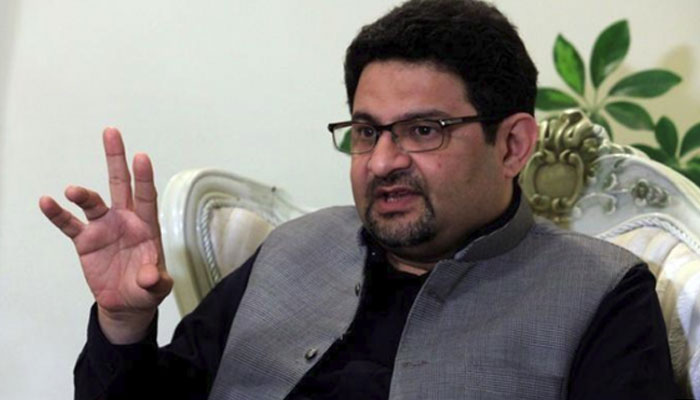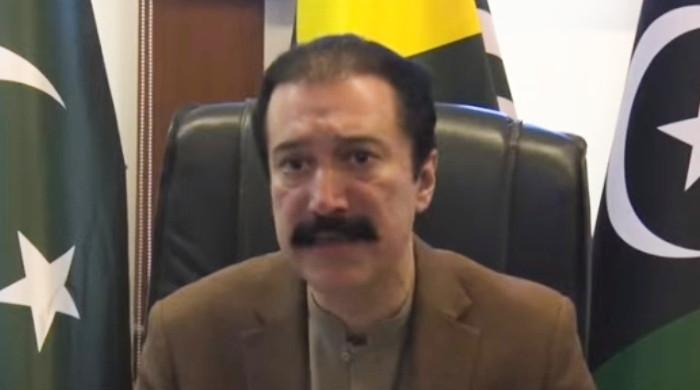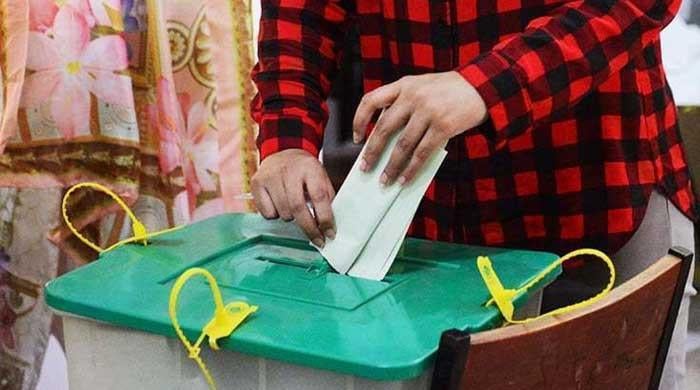US trying to 'embarrass' Pakistan with terror financing list: Miftah Ismail
'If Americans were interested in working with us they would have taken the offer I was making them', the PM's aide says
February 27, 2018

ISLAMABAD: Advisor to PM on Finance Miftah Ismail has brushed off concerns that economic growth will suffer because of the country’s re-inclusion on a terrorist financing watch list, and lashed out against the United States for seeking to “embarrass” the nation.
Washington last week persuaded member states of the Financial Action Task Force (FATF) to place Pakistan back on the “grey list” of nations with inadequate terrorist financing or money laundering controls. Pakistan was on the list for three years, until 2015.
The diplomatic setback has sparked anger in Islamabad against United States, which championed the motion against Pakistan at the FATF meeting in Paris. It represented another blow to the worsening relationship between the uneasy allies.
Ismail, who led Pakistan’s negotiations in Paris, told Reuters that Washington did not seem genuinely eager to see Pakistan boost its terrorist financing regulations and was instead bent on humiliating the country.
“If the Americans were interested in working with us and improving our CTF (counter-terrorist financing) regulations, they would have taken the offer I was making them,” Ismail said. “But their idea was just to embarrass Pakistan.”
Ismail said that he urged the United States to allow Pakistan until June to fix any outstanding CTF issues and ceded ground in negotiations to strike a deal, but that the US was determined to see Pakistan suffer.
He said Pakistan’s law-enforcement shortcomings are often confused for lack of desire, especially at provincial level, where police officers are poorly trained when it comes to terrorist financing legislation.
“The will is there,” he added.
The advisor to PM ruled out Pakistan’s retaliating against Washington over the FATF listing. He said the country would keep working to improve its CTF capabilities and win the confidence of Britain, Germany and France, who co-sponsored the US motion in Paris.
Pakistan hopes to be removed from the grey list in six to 12 months from June, when it will be officially placed on the watch list, Ismail added.
'Little hiccup'
The PM's aide said he did not foresee the FATF decision acting as a brake on Pakistan’s economy, which, with growth above 5 percent, is expanding at its fastest pace in a decade.
“I would rather not be in the list, but I don’t think it will hurt” economic growth, Ismail said, adding that ordinary Pakistanis would not see any impact from the FATF move.
He pointed out that Pakistan’s economic growth accelerated even during the period the country was last on the watch list. From 2012-2015, exports and foreign currency reserves expanded, while its stock market shot up by more than 200 percent, he said.
“We are focused on improving our economy and overcoming this little hiccup,” Ismail said. “We will continue on our path forward.”
Later during his appearance on Geo News show 'Aaj Shahzeb Khanzada Kay Saath', the PM's aide said, "We are not in any list at present. The decision has been made to put Pakistan on a monitoring and reporting list, commonly known as grey list.
"There has been a perception that if we were not included in the grey list then we would be put on the black list. There is no question about that, given all what we have done, including anti-money laundering laws, anti-terrorism laws [made] in Pakistan."
Ismail said that after all this, it is impossible to put Pakistan on the black list.
He clearly stated that "between now and June" Pakistan is not included in any list, adidng, "There is no reporting requirement nor we have to do anything in this period."
Ismail said they informed all the concerned countries, including those four states behind the proposal against us, about measures taken by Pakistan. "They said that you took quite long and that they do not have an analysis of all this."
He further said that they grey list does not impose any sanctions and so it would not impact Pakistan's economy.









